#Rock & Roll Hall of Fame Induction Ceremony
Text

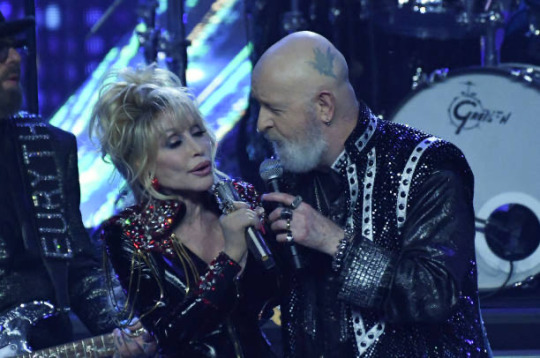

Dolly Parton and Rob Halford (of Judas Priest) perform Jolene at the Rock and Roll Hall of Fame induction ceremony 2022
#dolly parton#rob halford#judas priest#eurythmics#dave stewart#rock and roll hall of fame induction ceremony#rock and roll hall of fame#also on stage: p!nk brandie carlile pat benatar annie lennox#i love gay people#valarie macon photography
694 notes
·
View notes
Text

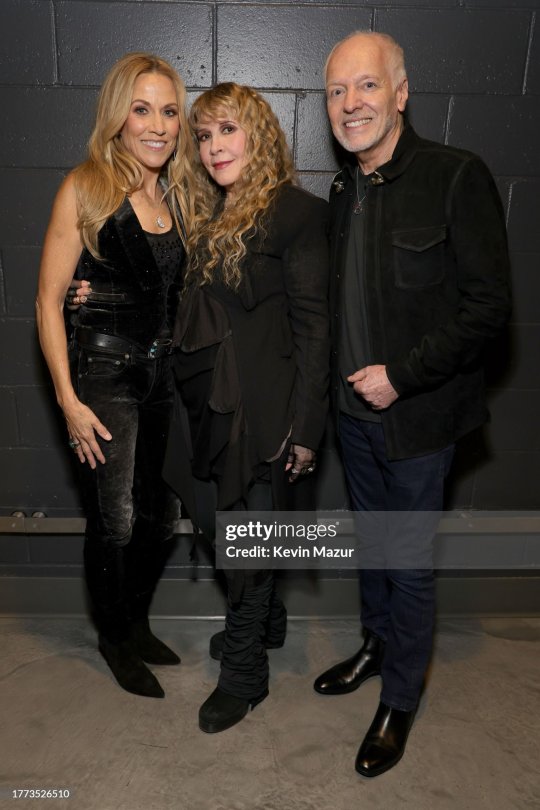



Laura Dern, Sheryl Crow, Stevie Nicks, & Peter Frampton attended Rock & Roll Hall of Fame Induction Ceremony in New York City on November 3rd, 2023.
Peter, Sheryl, & Stevie all performed together.
#Laura Dern#Sheryl Crow#Stevie Nicks#Peter Frampton#Rock & Roll Hall of Fame Induction Ceremony#New York City#USA#November 3rd 2023
26 notes
·
View notes
Text
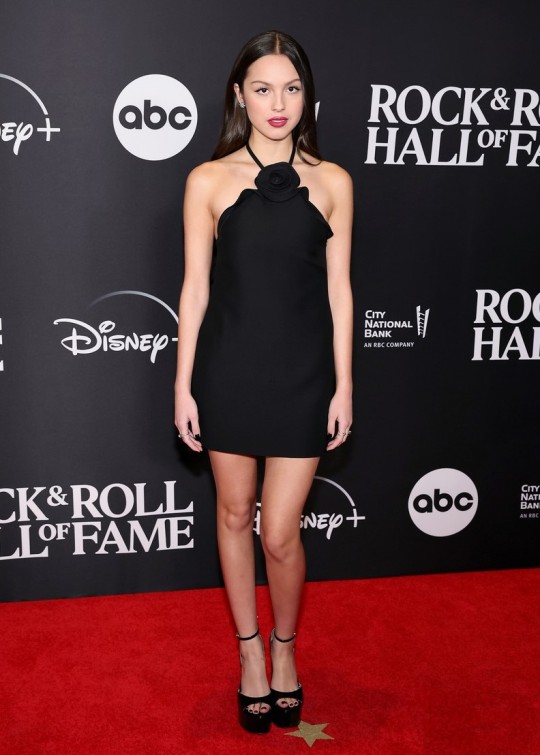
🖤 Olivia Rodrigo | Valentino dress | Rock & Roll Hall Of Fame Induction Ceremony | 2023
#pc: justjared#olivia rodrigo#valentino#rock and roll hall of fame induction ceremony#2023 rock and roll hall of fame induction ceremony#2023#🖤
12 notes
·
View notes
Text
💙💙💙
#eminem#eminemslimmarshall#marshall mathers#slim shady#the real slim shady#rap god#rock and roll hall of fame#induction ceremony
54 notes
·
View notes
Text
Willie Nelson, Missy Elliott, George Michael, and More: Here Are the 2023 Rock & Roll Hall of Fame Inductees
The outlaw legend, the rap queen, and few of this year’s inductees will perform at the ceremony, which takes place on November 3 at Brooklyn’s Barclays Center.
Read in Apple Music: https://apple.news/AB90kvpQXSA2fEnSoLwl1hg
Shared from Apple News
2023 ROCK & ROLL HALL OF FAME
Willie Nelson, Missy Elliott, George Michael, and More: Here Are the 2023 Rock & Roll Hall of Fame Inductees
The outlaw legend, the rap queen, and few of this year’s inductees will perform at the ceremony, which takes place on November 3 at Brooklyn’s Barclays Center.
The Rock & Roll Hall of Fame has announced its 2023 inductees, which include a classic Motown act, a reclusive post-punk goddess, a militant agitprop alt-rock band, and, finally, a 90-year-old country and pop-culture titan. Willie Nelson, George Michael, Missy Elliott, Sheryl Crow, Rage Against the Machine, The Spinners, and Kate Bush will all officially join the institution and receive their well-deserved honors as part of the induction ceremony at Brooklyn’s Barclays Center on November 3.
In addition to these incredible talents, the Hall of Fame will also highlight several musicians and industry champions with additional accolades. The recipients of this year’s Musical Excellence Awards—for artists, musicians, songwriters, and producers whose originality and influence have had a dramatic impact on music—are the reigning Queen of Funk, Chaka Khan; prolific songwriter and longtime Elton John musical partner Bernie Taupin; and Al Kooper, the renowned multi-instrumentalist, producer, Bob Dylan collaborator, and Lynyrd Skynyrd discoverer. Hip-hop pioneer DJ Kool Herc and influential guitarist Link Wray will each receive the Musical Influence Award, designated for artists whose style has directly influenced, inspired, and evolved rock ’n’ roll and music impacting youth culture. The Ahmet Ertegun Award, a distinction for non-performing industry professionals, will posthumously honor Soul Traincreator and TV host and producer Don Cornelius, who passed away in 2012.
Explore essential tracks from some of the 2023 Rock & Roll Hall of Fame inductees below, and tune in to our live broadcast on Apple Music 1, where Apple Music radio hosts Ebro Darden, Rebecca Judd, Matt Wilkinson, Brooke Reese, and Kelleigh Bannen will be joined by Crow and Taupin to discuss their achievements and this year’s celebration.
Willie Nelson
THE BRAIDS, THE smile, the trusty guitar named Trigger, the impassioned activism, the unabashed passion for all things cannabis (and his song about it, “Roll Me Up and Smoke Me When I Die”)—there’s a lot to love about Willie Nelson, and fans all over the world can give you several reasons why they’re still showing up to see him sing well into his 90th year. He may have gotten his start singing country western tunes in the ’50s and ’60s, but Nelson hit his stride in the ’70s when he bucked the conventions of Nashville’s Music Row to make the stripped-down country music hewanted to make, the sort that sounded much more at home in a crowded honky-tonk than the Grand Ole Opry. Then, he found kindred spirits in Johnny Cash, Waylon Jennings, Kris Kristofferson, and other artists who became the founding fathers of outlaw country, and now he’s mentored and played with younger generations of musicians who keep the outlaw spirit alive in their own way, like Margo Price, Jason Isbell, and Sturgill Simpson. At 90, Nelson’s voice may be a bit more gravelly than it was in his Red Headed Stranger days, but he’s still strumming Trigger with abandon any chance he gets.
George Michael
GEORGE MICHAEL ROSE to fame in the ’80s as one half of the feather-haired duo Wham!, who churned out some of the catchiest radio hits of the decade—namely the jubilant “Wake Me Up Before You Go-Go,” the bittersweet modern holiday ballad “Last Christmas,” and “Careless Whisper,” the sultry single possessing one of the most memorable sax solos of all time. His velvety tenor, boyish charm, and melodic instincts as a songwriter secured his pop star status in Wham!’s heyday, but Michael’s star went supernova with 1987’s Faith, his debut solo album. The title track is one of his eight singles to hit No. 1 on the Billboard Hot 100 chart; the other seven include his duet with Aretha Franklin, “I Knew You Were Waiting (For Me),” and a version of Elton John’s “Don’t Let the Sun Go Down on Me” that features both Michael and the Rocket Man himself. In 1998, Michael came out as a gay man, and he was a vocal advocate for the LGBTQ+ community and HIV/AIDS prevention efforts throughout his career. Fans were stunned when Michael passed away unexpectedly in 2016 at the age of 53, but his songs—and his legacy—endure.
Missy Elliott
THERE HAS NOT been a woman rapper in the Rock & Roll Hall of Fame—until now. “Get Ur Freak On,” “Pass That Dutch,” “Lose Control,” “Work It”—there was a stretch in the early 2000s when Missy Elliott’s beats and bars were inescapable. Her music videos—especially the clip for 1997’s breakthrough single “The Rain (Supa Dupa Fly),” in which she transformed a trash bag into an unforgettable ensemble—were in constant rotation on MTV. Her songs were omnipresent on radio, and earned her a collection of the industry’s highest accolades (including four Grammys and several MTV Video Music Awards). She’s an exceptional rapper, as well as a production genius and lauded songwriter (and one who’s been officially honored by the Songwriters Hall of Fame). She’s collaborated with some of the most beloved hitmakers in R&B and pop at large: Aaliyah, Jennifer Hudson, Jazmine Sullivan, Ciara, Nelly Furtado, and many more. In short: Missy Elliott is, and has been, a force to be reckoned with, an MC who can do it all with infinite crossover appeal. And now, to top it all off, she’s making history.
Sheryl Crow
IT’S BEEN NEARLY 30 years since the release of Tuesday Night Music Club, Sheryl Crow’s debut album, and yet its tunes—“All I Wanna Do,” her first single; the frank and fed-up “Can’t Cry Anymore”; the sparse and stunning “Strong Enough”—remain some of the most beloved in her catalog. That says something, given how busy Crow’s been since: 10 albums followed, as have several songs as beloved as that first batch, from the snarling “If It Makes You Happy” and the profound “Everyday Is a Winding Road” to “Prove You Wrong,” her country-rock anthem featuring Stevie Nicks and Maren Morris. Her writing has always drawn as much from classic rock and folk as it has the licks and conventions of country, and as such she’s carved out a place entirely her own with one foot firmly planted in each genre: She’s as much at home in the studio with Chris Stapleton as she is with Justin Timberlake, and her songwriting chops—not to mention her crystal-clear voice—soar beyond the confines of genre.
Rage Against the Machine
RAGE AGAINST THE Machine has been previously nominated for entry into the Rock & Roll Hall of Fame four times, but the fifth time’s the charm for the righteously deafening rock mainstays. Since forming in 1991, the four-piece has made heavy protest tracks their calling card, with 1992’s unfiltered breakout track “Killing in the Name” and subsequent singles—like “Bulls on Parade,” “Guerilla Radio,” and “Sleep Now in the Fire”—all speaking truth to power while shining a glaring spotlight on the myth of American exceptionalism. Read Rage Against the Machine’s statement regarding their induction in full here:
It is a surprising trajectory for us to be welcomed into the Rock & Roll Hall of Fame. In 1991 four people in Los Angeles formed a musical group to stand where sound and solidarity intersect. We called ourselves Rage Against the Machine.
A band who is as well known for our albums as we are for our fierce opposition to the US war machine, white supremacy and exploitation
A band whose songs drove alternative radio to new heights while right wing media companies tried to purge every song we ever wrote from the airwaves
A band who shut down the NY Stock Exchange for the first time in its history
A band who was targeted by police organizations who attempted to ban us from sold out arenas for raising our voices to free Mumia Abu Jamal, Leonard Peltier and other political prisoners
A band who sued the US State Department for their fascist practice of using our music to torture innocent men in Guantanamo Bay
A band who wrote rebel songs in an abandoned, industrial warehouse in the valley that would later dethrone Simon Cowell ’s X-Factor pop monopoly to occupy the number 1 spot on the UK charts and have the most downloaded song in UK history
A band who funded and organized delegations to stand with Mexican rebel Zapatista communities to expose the Mexican government’s war on indigenous people
A band whose experimentation in fusing punk, rock and hip-hop became a genre of its own
Many thanks to the Hall of Fame for recognizing the music and the mission of Rage Against the Machine. We are grateful to all of the passionate fans, the many talented co-conspirators we’ve worked with and all the activists, organizers, rebels and revolutionaries past, present and future who have inspired our art.
The Spinners
“I’LL BE AROUND,” the immediately recognizable hit from R&B and soul crooners The Spinners, is a groove with with a unique cultural footprint. You can’t hear the subtle drums and telltale chords without humming the chorus in your head: “Whenever you call me, I’ll be there/Whenever you want me, I’ll be there/Whenever you need me, I’ll be there/I’ll be around.” The Spinners are one of a few Detroit soul groups who truly found their groove by leaving Motown. On that label they hit with Stevie Wonder’s “It’s a Shame,” but it took a hook-up with Philadelphia maestro Thom Bell to bring out their best. Bell’s smooth and sumptuous productions were the blueprint for Philly soul, and The Spinners’ Philippe Wynne had the voice to match. Lightly funkified love ballads became their trademark, but they could also draw from gospel on “Mighty Love” and do social commentary on “Ghetto Child.”
Kate Bush
THOUGH FANS OF Kate Bush have been blasting Hounds of Love and the rest of her greatest hits for decades, the reclusive British singer-songwriter saw an unlikely resurgence when her 1985 single “Running Up That Hill” was worked into the supernatural plot of Netflix’s hit series Stranger Things last summer. It’s hardly surprising that younger audiences connected with its driving drums and synth-laden, discordant chorus, nor is it shocking that Bush’s robust voice continues to stun listeners when they encounter her signature song—or “This Woman’s Work,” or “Wuthering Heights,” or anything else in her repertoire—for the first time. The list of famous Bush fans is long, and it counts everyone from Adele and Björk to ROSALÍA and Solange, not to mention several artists previously honored by the Rock Hall (like Stevie Nicks, who considered recording her own version of “Running Up That Hill” before realizing she “can’t really do that song better than Kate Bush did”).
Sent from my iPhone
Congratulations 🍾🎉🎊🎈 to this year’s 2023 rock and roll hall of fame!
⭐️George Michael
⭐️Sheryl Crow
⭐️Willie Nelson
⭐️Missy Elliott
⭐️Kate Bush
⭐️The Spinners
⭐️Rage Against the Machine
⭐️Chaka Khan
⭐️Al Kooper
⭐️Bernie Taupin
⭐️DJ Kool Herc
⭐️Link Wray
⭐️Don Cornelius
#rock and roll hall of fame#2023#George Michael#⭐️Sheryl Crow#⭐️Willie Nelson#⭐️Missy Elliott#⭐️Kate Bush#⭐️The Spinners#⭐️Rage Against the Machine#⭐️Chaka Khan#⭐️Al Kooper#⭐️Bernie Taupin#⭐️DJ Kool Herc#⭐️Link Wray#⭐️Don Cornelius#Congratulations 🎊🍾🎈🎉#Induction ceremony
14 notes
·
View notes
Text
Should be mandatory for every rockstar to get an autism screening
2 notes
·
View notes
Text
Rock & Roll Hall of Fame Induction Ceremony Airs 1/1/24 on @ABCNetwork Preview via @stacyamiller85
Rock & Roll Hall of Fame Induction Ceremony airs January 1, 2024 on ABC.
Continue reading Untitled
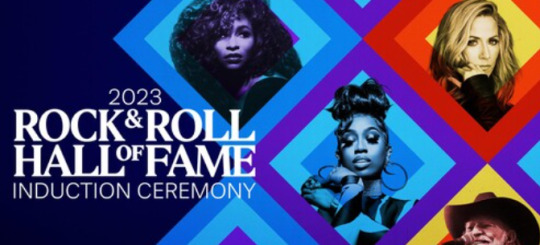
View On WordPress
0 notes
Text
Missy, Willie and George Michael among Rock & Roll Hall of Fame inductees
Missy Elliott, Willie Nelson, Sheryl Crow, Chaka Khan, “Soul Train” creator Don Cornelius and the late George Michael have all been inducted into the Rock & Roll Hall of Fame, with Kate Bush also finally reaching the top of that hill.
The Cleveland-based institution announced Wednesday the artists and groups entering the hall as the class of 2023, a list that includes The Spinners, Rage Against…
View On WordPress
#rock & roll hall of fame 2023#rock & roll hall of fame induction#rock & roll hall of fame november 3 ceremony#what is rock & roll hall of fame#who are in the rock & roll hall of fame
0 notes
Text


Olivia Rodrigo performs at the 38th Annual Rock & Roll Hall Of Fame Induction Ceremony at Barclays Center on November 03, 2023, in New York City.
#olivia rodrigo#orodrigoedit#blogmusicdaily#dailyolivia#guts olivia rodrigo#bad idea right#vampire#or2#get him back
265 notes
·
View notes
Text
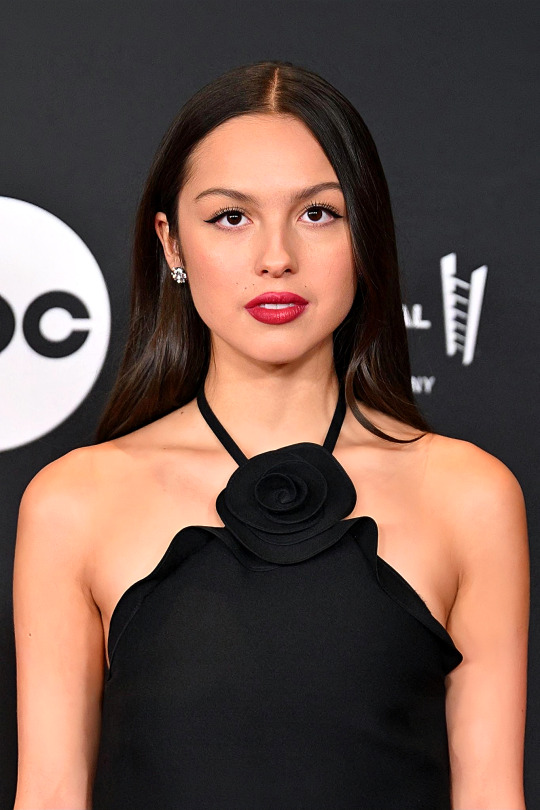
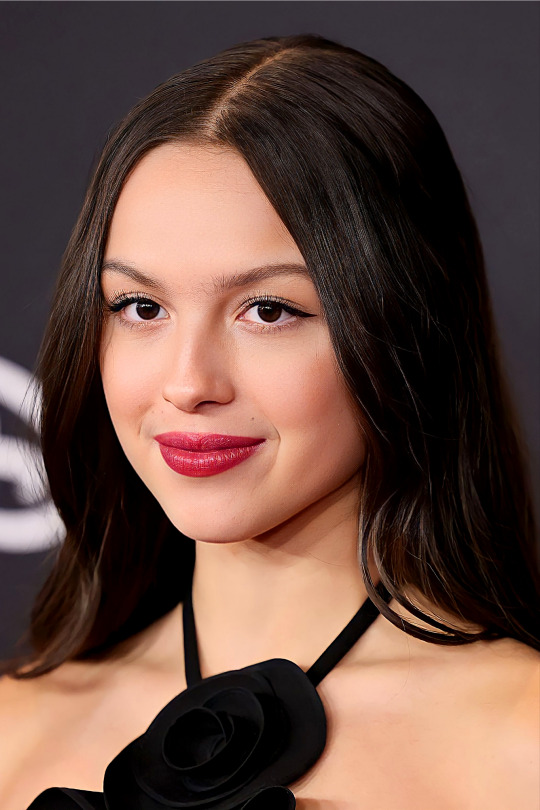
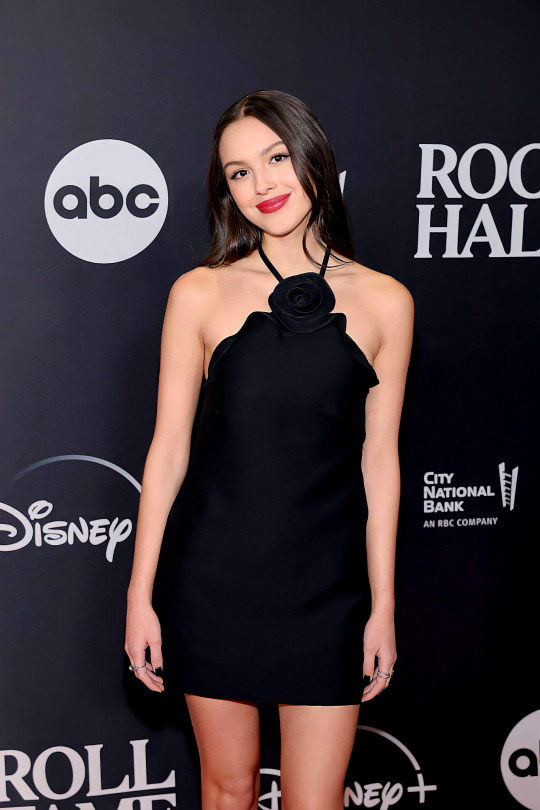
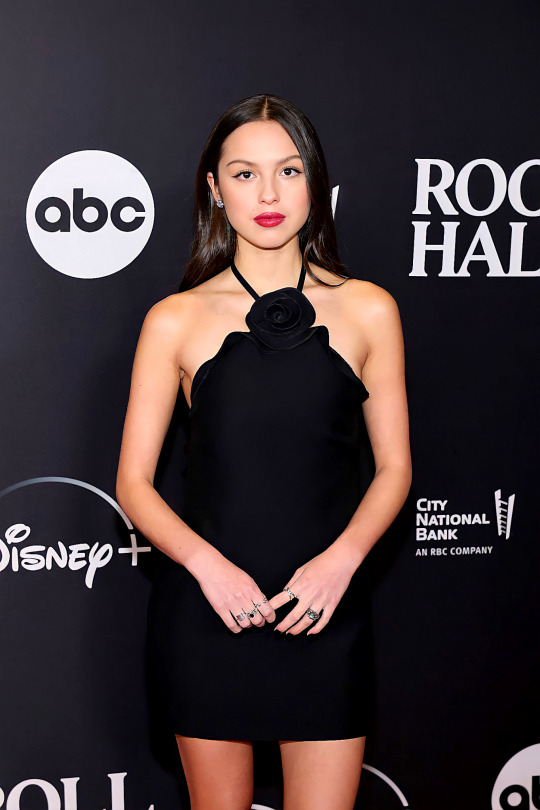


Olivia Rodrigo attends the 38th Annual Rock & Roll Hall Of Fame Induction Ceremony at Barclays Center on November 03, 2023 in New York City.
#olivia rodrigo#orodrigoedit#oliviarodrigoedit#usermusic#usernarco#musicdaily#blogmusicdaily#flawlessbeautyqueens#thequeensofbeauty#breathtakingqueens#dailymusicqueens#femalestunning#femalesource#wonderfulwomendaily#glamoroussource#celebs#music#event#rock and roll hall of fame
221 notes
·
View notes
Text

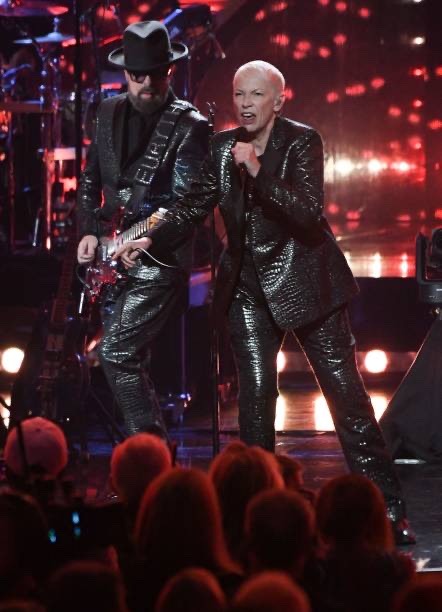
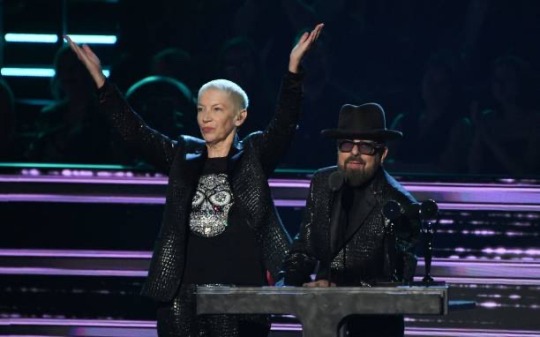
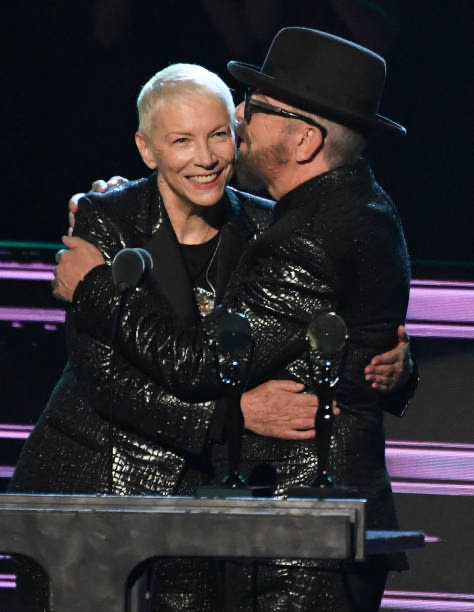
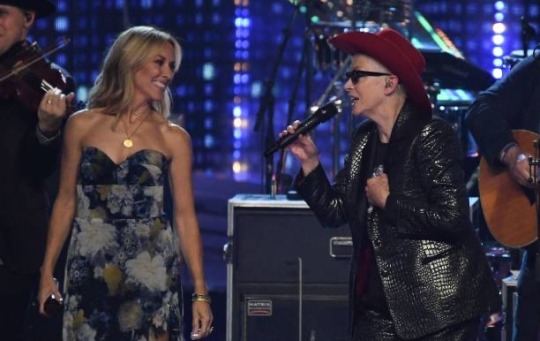
#annie lennox#dave stewart#eurythmics#rock and roll hall of fame induction ceremony#annie lennox hottest woman alive#red cowboy hat is during jolene with dolly parton#sheryl crow
11 notes
·
View notes
Text


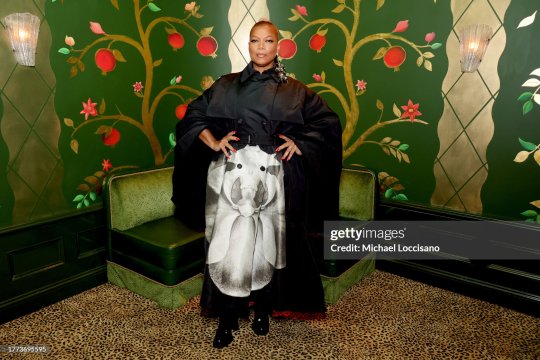

Queen Latifah at the Rock & Rock Hall of Fame Induction Ceremony in New York City on November 3rd, 2023.
11 notes
·
View notes
Text
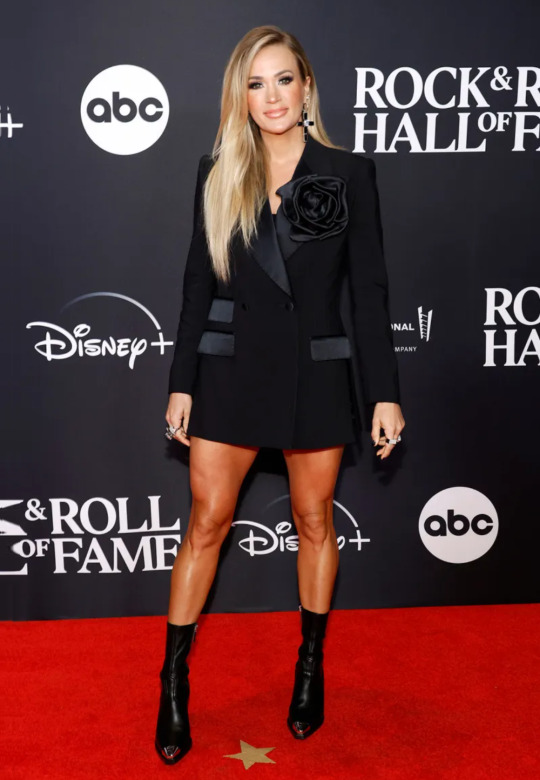
Carrie Underwood | Dolce & Gabbana ensemble | Rock & Roll Hall Of Fame Induction Ceremony | 2023
#pc: billboard#carrie underwood#dolce & gabbana#rock and roll hall of fame induction ceremony#2023 rock and roll hall of fame induction ceremony#2023
10 notes
·
View notes
Text
What a night to be alive!

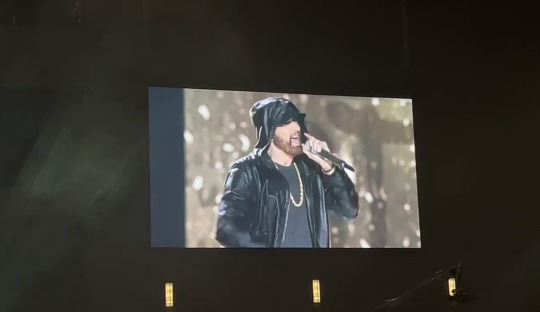
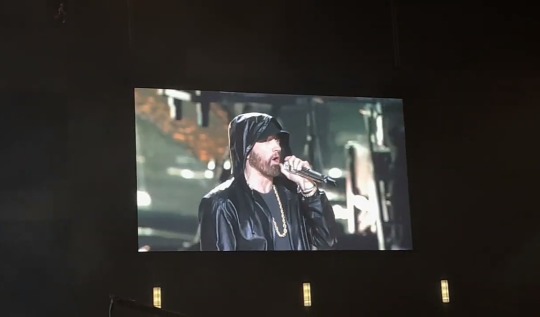

Rock and Roll Hall of Fame Induction Ceremony
#eminem#eminemslimmarshall#marshall mathers#slim shady#rap god#the real slim shady#rock and roll hall of fame#induction ceremony#eminem pics#eminem 2022#eminem aesthetic#rap music
27 notes
·
View notes
Text
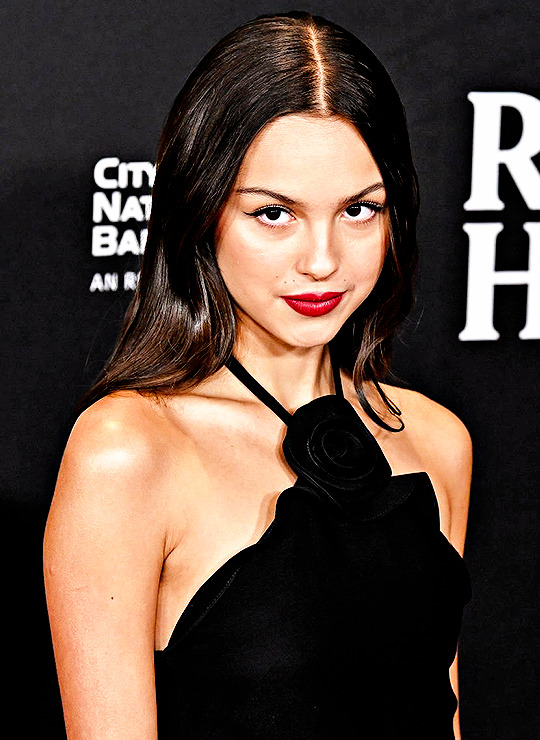
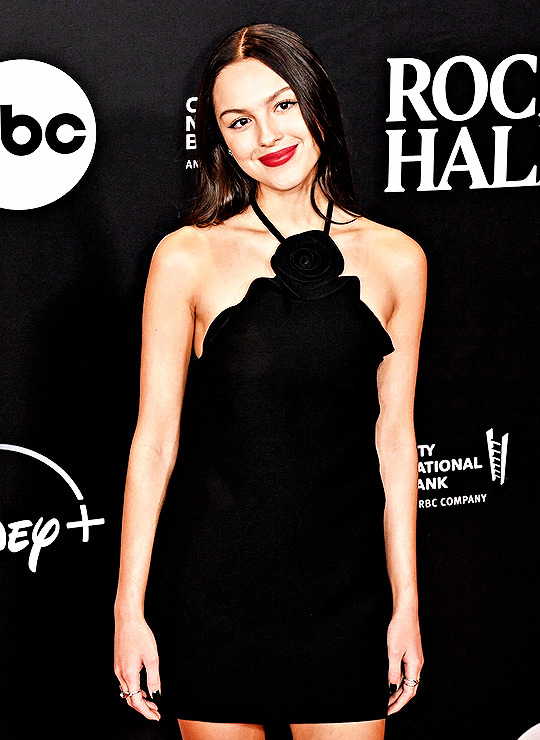
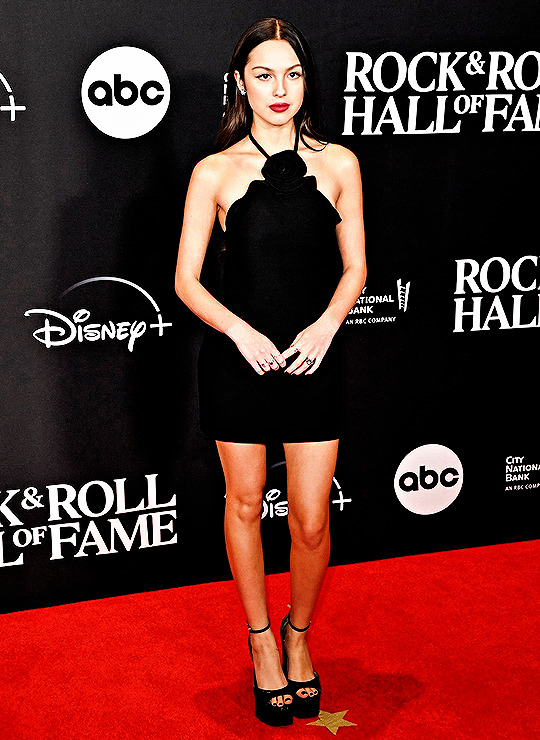


OLIVIA RODRIGO
38th Annual Rock & Roll Hall of Fame Induction Ceremony (Nov 03, 2023)
#olivia rodrigo#oliviarodrigoedit#dailyolivia#chewieblog#dailymusicians#dailymusicqueens#flawlessbeautyqueens#breathtakingqueens#userquel#usergal#usermorgan#nessa007#userladiesblr#userelena#people#edits#ours#by renata
313 notes
·
View notes
Text
Pretty Boy Live in Santa Fe, 1977
Part 1/3 Also on Ao3 here
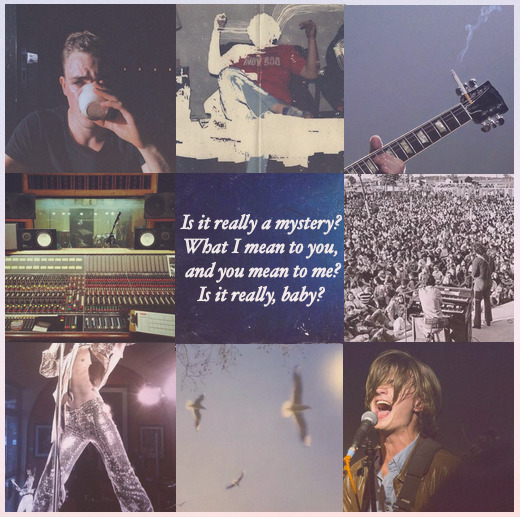
For @harringrove-relay-race. Very happy with how part 1 turned out, and there will be more to come. Thanks to @foxxtastic for the intro and next up will be something stunning from our fearless Relay Race leader @half-oz-eddie
Rated M / 5k words / Part 1/3

Part 1: Into Hades
Rolling Stone Magazine - May 2002
Billy Hargrove arrived after I did, in his lovingly maintained blue Camaro, the subject of his song, “Lady Blue.” “Lady Blue” was recently named #93 on Rolling Stone’s Top Love Songs of the Century.
“I wrote, ‘She’s the wind in my hair, the rumble in my soul.’ I thought it was so obvious,” He laughed, his blue eyes still boyish. “My niece made it her wedding song, I said ‘Really? It’s about a fuckin’ car!’”
He showed me several pictures of his niece, the supermodel Tyler Sinclair. It seems good looks run in the family. He suggested the diner and he ordered waffles, winking when I mentioned that we’ll be here a long time.
The decades have been kind to him, maybe a few more lines. It’s not hard to imagine him stepping right back onto the stage, as if no time has passed at all.
“A little extra glitter on the eyes,” He said with a smile, “to hide my crows feet. That’s all I need.”
I ask what he’s going to wear to the Rock and Roll Hall of Fame ceremony for Kaleidoscope's induction and his smile dims only for a moment.
“I think I should pull out some old costumes. You know, the butterfly still fits.”
He was referring, of course, to the sheer butterfly cape costume that nearly had him thrown off the stage in Houston Texas in December 1976. He caved to putting on a pair of silvery shorts rather than the nude underwear it was designed with. He later wore it with the nude underwear on the inside cover of Kaleidoscope, the album that will be inducted into the Rock and Roll Hall of Fame in just a few short weeks. Kaleidoscope was his last album with the iconic Glam Rock band Pretty Boy, which famously broke up at the height of their career while touring for the album, onstage.
It’s not often that a band is inducted into the Rock and Roll Hall of Fame and there’s a question if all of them will even show up.
“I’ll be there,” Hargrove said, fiddling with the silver band on his middle finger. “I have no problem with seeing him.”
The him is, of course, the lead guitarist and other lead singer of Pretty Boy, Steve Harrington.
Steve Harrington invites me to his oceanfront house in Malibu later that afternoon.
“I haven’t decided if I’m going to go,” He said thoughtfully, his brown eyes darting around the room.
When I mention that Billy is going to go, he seems surprised.
“He didn’t say he was going to punch me, did he?” Harrington smiled, but it doesn’t seem like much of a joke.
For one of the most famous rock stars of the 70s, Harrington is shockingly low key. He wears a t-shirt and slouchy linen pants, and he jokes that he ought to have shaved when I take out my camera. The house is stunning but empty, with miles of blank white walls and overstuffed white furniture.
“I’m looking for a little peace,” He shrugs, “I used to have all these pictures up, all this furniture… It was too much.”
It was hard not to see him as an artist without a muse. He drifted listlessly, picking things up and putting them down as we talked. So it was a surprise to me to hear that he’s been recording.
“I may never release it but… Yeah,” He laughed, “Music. After all this time. Bet you didn’t know.”
He picks up a rare photo from the piano. It’s from the early days of Pretty Boy, before Billy Hargrove. Harrington has his arm around his bandmate, Eddie Munson. Their drummer Chrissy Cunningham is balanced precariously across their shoulders, laughing and cringing at the same time. Bassist Robin Buckley smirks from the corner of the frame, messy bangs in her eyes.
“Who knew, right?” He asked no one, shaking the frame a little.
There are no pictures of Billy Hargrove.
“That’s a… a long story,” He said, when I asked.
But I have time. I tell him Rolling Stone will pay for it. At least that makes him laugh.

It was just by chance that Pretty Boy’s last concert was filmed.
“We were meant to just film in Vegas,” The director, Argyle Molina-Zapata, sat down with me after a private screening of Pretty Boy Live in Santa Fe, 1977, “But there was a freak rainstorm, and I couldn’t get my camera’s out of the back. The crowd was digging it, refused to leave. I remember when Billy hit the high note for ‘Mother Make Me,’ there was this lightning crack… brilliant.”
Molina-Zapata shook his head, “But the footage, what I got of it, was awful. Awful! So I begged Murray to let me come with them to Santa Fe.”
Murray was Murray Bauman, famed tour manager, who handled the Boys, later Pretty Boy from their first album Starfire, all the way to Kaleidoscope.
“And I was lucky,” Argyle nodded, “They had that extra tour bus.”
The tour busses are featured in the first few minutes of the film. They roll around the corner, one reading Billy Blue (Billy’s original stage name was Billy Blue before he dropped the Blue), and the other, Steve’s Six (Named after Steve’s best friends from his hometown.)
“They were nightmares,” Murray Bauman’s voice crackled over the phone, “Nightmares on tour. Separate buses. Separate hotels. Fuck me, I swear to god at one point they wanted separate stages. And the label caved on almost all of it. Fucking nightmare.”
It’s almost impossible to imagine it when you see them on stage together. There’s something electric that passed between Billy Hargrove and Steve Harrington, something that drove crowds wild. They gravitate towards each other on the stage, orbiting like planets until they can share the same mic. They can’t seem to stay apart.
It’s hard to see exactly what happened that night.
“I’ve watched it a million times,” Argyle laughed, “But the only two people who can really say what happened are Billy and Steve.”
What you can see is this: Steve tearing into “Pride & Prejudice”, the lead off Kaleidoscope and the last song of the night.
Billy was trembling, visibly shaking as he sang and Steve harmonized along.
What can I say, if you ask me to walk away?
Baby, there’s no words for you.
Baby. I don’t know what to do.
Billy danced closer, joining Steve, his handheld mic loose at his side.
Can you ever put away your pride?
Is it worth it to not have me at your side?
I guess it must be, because I’m yours,
Regretfully,
Baby.
Billy leans in, sharing Steve’s mic for the bridge.
Is it really a mystery?
What I mean to you, and you mean to me?
Is it really, baby?
Billy shook his head, curls bouncing. He looked into Steve's eyes. He smiled. Steve looks at Billy, and Billy looks at him. It almost looks like Billy mouths something, but bootleg footage also has appeared where it looks like Billy just nodded. Steve goes a little shell shocked, hand freezing on his guitar, falling out of sync.
And then Steve turned away and left the stage, handing his guitar to a stagehand. Billy turned to the crowd, his expression strangely triumphant. He was always magnetic on stage, but this moment transcends that. It somehow feels like he’s getting everything he wants.
So I guess I’m losing you,
You promised me you would and it’s true.
Baby, there’s no words for you.
Baby. I don’t know what to do.
Steve Harrington hasn’t performed in public since 1977.

“None of us knew what was going to happen that night,” Chrissy Cunningham curled up next to her husband, Eddie Munson, on the large white couch of their Seattle home.
They’re a handsome couple still, draped in rock and roll finery. He toyed with the edge of her scarf, and she curled his long hair around her long fingers.
“We had some of our own shit going on at the time so…” Munson shrugged, “Maybe we were distracted.”
Their living room was crowded and verdant, every spare flat surface covered in plants. Their partner, former record executive Jason Carver, puttered in the kitchen in an apron that read Plant Papa.
“Yeah,” Chrissy smiled, “We had some stuff going on at the same time. But still… It seemed like they were getting better. Didn’t it seem like they were getting better?”
Munson shrugged, “The thing about Billy and Steve… they were soulmates. You don’t write music like that and not… it was like they had a second language, just for them. They were soulmates, I really believe that. Everything they did, everything that happened… they could only hurt each other that badly if… yeah.”
When I ask what they did to each other, Eddie and Chrissy just scooted closer together, like teenagers in a slasher, hiding from the killer. She laid a hand over his leg, her two stone diamond ring catching the sunlight.
“Steve never wanted Billy to be in the band,” Eddie shook his head, “but Jim had a soft spot for Billy. And Steve had… I mean Jim was…”
“Jim was like a father. To all of us.” Chrissy’s knee jiggled.
“We were this little tiny band from Nowhere, Indiana,” Eddie nodded, “And Jim believed in us.”
“I was just a junior exec at the time. I was put on the Kaleidoscope tour in case of catastrophic failure, which by the way it was,” Jason Carver is making risotto while we speak, the steam curling the lock of hair that falls over his face. “But it wasn’t my fault although I was high as hell on coke half the time. I guess I deserved to get fired. But Jim was the real deal. Gold records out the ass, best wife in the world, and his daughter, I mean… she was something else.”
They’re referring, of course, to Jim Hopper, producer on Kaleidoscope as well as Billy Blue and The Boys’ records, and the father of pop superstar Eleven aka Jane Hopper.
“Jim was…” Steve Harrington’s eyes always got a little misty talking about Jim, staring out over the ocean. “Yeah, I guess he was a little like my dad. My own parents were always gone. Which is like… I grew up so privileged so like I’m not saying… I just mean I grew up mostly by myself. And we were just so lucky he even agreed to listen to us when we got to LA.”
“I remember that night,” Joyce Hopper’s voice was raspy, cigarette-y in the way only old movie stars are. She’s a gorgeous woman in jeans and a gardening hat, speaking to me while she tends to her garden at her home in Castellammare. “He came home and said, ‘I have the next ones, the next big ones. Fuck, Joyce, they’re brilliant. Unpolished, but brilliant.’”
When I ask about when Jim discovered Billy Hargrove she just laughed.
“If Steve and the rest of The Boys were unpolished, Billy Hargrove was a fucking ten carat diamond,” She said. “But Steve’s band was Jim’s, and he could polish them up how he wanted. And then when he thought they were just right for it… he set the diamond.”
Jim Hopper was a big man, larger than life both in appearance and in personality. His fingerprints are all over some of the best hits of the decade.
Watching him on old interviews, there’s an immediacy to his presence that leaps off the screen.
“My daughter is the one who really found him. She snuck out with her sister and wandered God knows where. And she just… found him. Called me the next morning, saying ‘Dad, you have to hear this guy.’ He was playing in this… terrible club,” Jim said, tapping his cigar on the table of Merv Griffin’s set. “Absolute shithole, pardon my french. And he’s got a great voice, you’ve heard his voice, right?”
“I have,” Merv said.
“I had to get him out of there. He was a star.”
Billy Hargrove was a teenage runaway from San Diego when he came to LA in 1971.
“I had a girl’s backpack from my stepsister, eight dollars, and an extra pair of underwear. By the end of the next week? I had two more dollars,” Billy laughed. “But I got lucky. I met Heather.”
Heather Holloway was a showgirl at Wildwoods, a nightly revue. She found Billy at the backdoor, and took him to her apartment.
“She saved me,” He frowned. “Whenever I needed her most.”
Heather Holloway, Billy Hargrove’s first and only wife, died in 1979.
“I got a job singing at Sugar, this great gay club downtown. It was in the late afternoons, so I had a crowd of about… two. But those two brought two more,” Billy smiled, “Heather would talk me up to all the promoters. He’s a singer, he’s great, you’ll love him, he’s so cute.”
“He was an instant hit,” Sugar’s manager, Bob Newby, tells me by phone as well. “I did have to keep a couple of creeps off him, when he just started he was only nineteen. But even if you closed your eyes… he was a hit.”
“Guys used to think that because I was a part of the entertainment, I was fair game. And let me tell you, the novelty of that wears off mighty quick,” Billy shakes his head.
He shares a diary entry from his late wife of a night in April 1972. He came to her home with blood all over his face.
“Some guy thought because I was a fag…” Billy’s mouth twisted, but he went on, cradling the little marble notebook in his hand. “He could do whatever he wanted to me. When I fought back… he cracked a bottle over my head.”
He’s not just a piece of meat. He’s a person. I don’t understand these people. I just don’t understand, Heather Holloway wrote. I cleaned him up and he’s sleeping now.
The next diary entry is from a day later. April 12. Billy and I drove to Vegas and got married. When we spoke in the morning he said he was afraid for me too, even though I’m careful with the girls. He’s afraid of the cops trying to bust up the Wildwoods and picking me up. At least this way, he says. He and I can come home to each other. Look out for each other. Always. The groom wore band aids and his great velvet pants. The bride wore lavender. It was perfect.
“And lucky too. Because within a month… I met Jim,” Billy smiled. “And my whole life changed.”
Upside Down Records signed Billy Blue, unagented, in1972 and he spent the next year working on his debut album with Jim Hopper.
“I didn’t even realize, when it happened,” Billy shook his head. “A couple of girls came by after a show, wanting to talk to me, wanting to meet me. That wasn’t that unusual. But they were young, far too young to get into the club. And the little one, she was asking all these weird questions. Did I have an agent? Did I know if I had enough songs for an album? Weird fuckin’ questions. And then she said I have to meet someone. To be honest, I thought she was coked out of her mind when she said, ‘You have to meet my dad.’”
“I was not,” Eleven promised me, “coked out of my mind. But that’s just Billy.”
Eleven aka Jane Hopper, meets me backstage at one of her shows. She’s dressed in slouchy leather pants, to match her sister and drummer Kali Hopper.
“I knew he was something special. My dad was always talking about the IT factor. That thing that made a person something special. But I didn’t get it until I saw Billy Blue singing on that tiny stage,” She smiled. “He didn’t just have the IT factor. He was IT.”
It’s odd then, that Billy Blue’s first album had a surprisingly tepid response. His first single, in 1973, “Let Alone,” came in at only 26th for the month of April on the pop charts.
“People liked it,” Billy shrugs, “But I don’t think they knew what to do with it. You have my songs, these like… little pop love songs and ballads. I wasn’t that strong of a writer at the time. It was like half my songs, half covers. And so they’d book me, expecting fucking… Peter Frampton. And here comes this big queer with glitter on his nipples.”
But the lyrics of “Let Alone” would hint at his later songs, a hallmark simplicity that shone off his raw voice and poetry that hinted at a troubled past.
And if you were meant to care for me
You would, and that’s how it has to be
You said I couldn’t go on without you
Ha, look at me, looking brand new
At the same time, The Boys’ song “Paper Girl,” penned by Harrington, was number one.
She’s my paper girl
She’s my paper girl
Wakes me up every morning, right on time
She got me smiling, got my head in a whirl
Picture perfect, paper girl
“Billy didn’t have much commercial appeal. Sex appeal, yes,” Jason laughed, toying with Chrissy’s hair. “But for sales? That’s where The Boys came in.”
“I hated that name,” Eddie said, “To start with we were half girls.”
The Boys had already had a somewhat successful tour under their belt by the time Jim suggested a collaboration with Billy Hargrove.
“It was a nice, short tour,” Steve Harrington glances away when I ask about the first tour.
“It was a nightmare. Balls to the wall nightmare,” Robin Buckley’s voice is a warm crackle over the phone. “Steve went on like thirty overlapping benders at once.”
Her partner, soap actress Vickie Carmichael cackles behind her, at their home in Salt Lake City.
“The thing about Steve is… well… he’s never found a good way of coping with himself,” Robin huffs. “Music was about as close as he ever got. But in those early days, he just kept looking for more and more.”
“You don’t think it was about-” Vickie asked, just barely into the phone.
“No.”
“It was about Nancy,” Eddie said confidently when I mentioned their first tour. “Nancy, Nancy, Nancy.”
The Boys got their start in the late sixties, beginning with Eddie and Steve. Eddie gave Steve guitar lessons, which turned into some talent show performances. They used to practice at Eddie’s Uncle’s trailer.
“That’s where we got the name,” Eddie nodded, “My uncle used to just call us that, and it stuck.”
“I don’t even remember,” Chrissy said.
“That’s not how we got the name,” Steve shook his head, when I mention Eddie. “It was our first gig, after we got Chrissy and Robin. Robin put it down after the headliner kept asking when ‘you boys’ would go on, and kept addressing it to Chrissy’s chest. She blew him out of the fucking water.”
Nancy Wheeler was there that night, writing about local bands for a tiny column in the school paper.
“She was beautiful. Smart. So smart. Could hear her talk forever,” Steve said, eyes falling.
Steve Harrington and Nancy Wheeler were married in 1972 after they graduated high school.
“Steve made his own choices,” Chrissy shook her head.
That summer, the Boys plus one drove to LA and Nancy Wheeler took a job at Women’s Day Magazine and later, Rolling Stone. Steve Harrington and The Boys got a “steady gig” at La Bonita Rosa on the strip, playing for drunks every night from seven to eight.
“I really liked playing at La Bonita,” Steve said. “The audience, right there. You could smell the sweat. You could see on their faces if you were bombing. And we used to bomb. A lot. But it was a great place to try things. Experiment. We played there for about a year but… it felt too short.”
Within the year they had met Jim Hopper, who got them into the recording studio and sold their demo nearly on the spot to Upside Down Records.
“They had a great sound. They had got this way of playing. Smooth like a polished stone. Everything sounds good sitting in a frame like that,” Jim said in an interview with Rolling Stone in 1981. “Their songs were… catchy, but basic. But they had the sound.”
Upside Down records set the Boys on a US tour after “Paper Girl,” and “Joy to Love You,” both charted.
“It was like… overnight. One day we’re in a studio, messing around. Kid stuff. I was nineteen,” Steve Harrington shookhis head. “But…”
“That tour,” Chrissy trails off, playing with her ring again.
“I…” Steve Harrington scratched his nose. “I was losing it. Majorly losing it. It felt like we had just moved to LA and we were already neck deep. I mean, I had a number one fucking song. And for some reason I got it in my head to call my mom. She told the maid she wasn’t home. And I could hear her over the phone. My mom. So yeah. I lost it. Lost about half my damn mind on that tour. And people will say it was because of Nancy, because we got married just out of high school, and she wasn’t supportive… but that wasn’t true. Nancy saved me.”
“Nancy never wanted him to be in the band. But… she also didn’t seem to care that much either,” Eddie shook his head, “It’s… complicated. Love is supposed to be. Simple. Like the chords of a song. 1-3-5.”
Jason Carver rolled his eyes at that, “Then what are we?”
Eddie grinned, “We’re a band.”
Nancy Wheeler met me on a Thursday in New York City, slim sunglasses dominating her small porcelain face. We get lunch at her favorite deli shop, and she perches at the counter, loafers dangling. She’s an editor at The New Yorker now, but she still has a soft spot for rock and roll, as evidenced by the Grateful Dead t-shirt under her blazer.
“That tour. I didn’t even know anything was wrong. He just came home with a funny look on his face, saying, ‘We’re headlining.’ So I said, ‘That’s great, Steve.’ He just kept… saying it. It was starting to piss me off, if I’m being honest,” She shook her head. “I should have known something was wrong.”
“I wish she had stopped me. But how could you know right? Hindsight is always 2020,” Steve Harrington said. “I mean, she was my wife. How could she not want me home? But that’s just… sorry. That’s not fair to put on her. I chose to go.”
“I flew out to meet them when they were in Indianapolis, visited my family, and I came a day early to see him,” She smiled warmly, and then it fell. “He was… Well, first, Eddie Munson tried to intercept me at the hotel, so I wouldn’t see him. I told him, ‘I’m here to see my fucking husband.’”
Steve Harrington didn’t add any more details about the tour, just shrugged when I asked.
“He was coked up like you wouldn’t believe,” Robin scoffed. “She walked in on him with two girls and coke all over his… well.”
“I just asked him. Do you want to come home? Do you want to get help? Or not?” She purses her lips. “And so he came home and we found a rehab place near Hawkins.”
“The tour kind of… fell apart. Obviously. We had lost our lead singer and guitarist to fucking… Hawkins, Indiana,”
Everything stopped for the Boys. Upside Down offered to let them out of their two album contract, but Steve couldn’t afford to pay it down.
“Rehab,” He shrugged. “Is expensive.”
Right as it seemed that everything would be over for the Boys, things were looking up for Billy Blue.
“Jim was always saying, ‘the record is selling alright, the songs are getting there but he needs a… push,’” Joyce said. “‘He’s so close. So close. He’s a star.’”
“He always believed in me,” Billy smiled, toying with his ring again. “Always. Even when I threw a jug of milk at his head.”
Joyce laughed when I asked about that moment, “He came home saying, ‘He milked me, Joyce. But he’ll fix the song tonight.’”
“And I did,” Billy said. “And the album was going alright. I did a little tour, socal and the southwest. And then one night, Jim brings me this song. He said, ‘I want you to tell me what’s missing from this.’”
The song was, of course, the Boys’ biggest hit, “Hades.” Steve Harrington’s first version was called, “To Orpheus” and the chorus goes:
Don’t turn back don’t look behind you baby
I’m close, I’m right behind
The future's so bright, and I want you to take me
Wanna be holding your hand when I make it across the line.
“It was fine, but just kind of… nothing. It was supposed to be about Eurydice, but it was so… nothing. She just loved Orpheus and that was it. There were no insides to her. She was going to follow him to her doom,” Billy shook his head. “That’s not right.”
This was not the version that made it to the recording booth, of course. The Boys’ single, “Hades featuring Billy Blue,” came out in 1975. The actual chorus goes:
Turn back on me and I won’t forgive you baby
Don’t want you to see me like this
Up ahead is bright, and I want you to take me
If you’re strong enough to cross that finish line
“‘Hades,’ was a real step forward for the Boys. Gone were the teenybopper tunes,” Steve Harrington’s biographer and personal friend Dustin Henderson wrote in his book The Pretty Boy. “Their first album got the kids dancing. But the second proved that they actually had something to say.”
“Still hate it,” Steve Harrington said. “I wrote that song in rehab. It was deeply, deeply personal to me.”
“He came out, all ready. He wanted to start recording right away,” Robin sighed. “Like I mean the next day. All these songs, just pouring out of him. But the label had lost faith in us. And they certainly weren’t going to let us start recording with a guy who had only just earned his thirty day sober chip.”
“The song wasn’t ready,” Billy shook his head. “But I guess he was. Jim said he needed this. So Jim asked if I would come and like… pitch some stuff as a personal favor. Songwriting credit, that’s all it was supposed to be. Get the songs moving, get them going.”
Steve Harrington takes a long time to continue speaking about it.
“I felt it, writing for that album. I felt proud of those songs. They didn’t belong to anyone else but me,” He toyed with some piano keys while we talked, and then finally sat down and began to play something tuneless and half formed.
“That album was all about Nancy,” Chrissy said. “I mean. I know it. You know it. Nancy knew it. And she kind of hated it. But-”
“You can’t leave your husband right as he gets out of rehab,” Nancy said to me, toying with her wedding ring. “When he writes all these songs about how you’re the only thing… Steve was always like that. Heart wide open. That’s why when he met Billy. I almost thought… it would all be okay. That sounds fucked up but. I thought they could save each other. That the music could save him.”
“It was just a songwriting credit,” Billy raised his hands. “Jim swore up and down. I was just gonna come in there and sit down with this guy Steve. But when I walk into the studio, there’s two mics set up.”
“I was the Boys’ only singer,” Steve Harrington shook his head. “And to be absolutely honest, I was kind of a jackass about it. So to have some guy come in and say he’s gonna sing me my song… well…”
“Steve was the only one who would ever argue with Jim, And he let him have it that day,” Eddie laughed. “He called him the most low down, dirty, rat bitten bastard in California, and that he would die rather than give up his band to someone else.”
“I did not want his band. I did not know his band. And I did not care. And his song sucked. And I told him so. And then I sang it. Better.” Billy smiled.
“Billy was…” Chrissy shook her head. “Incredible.”
I ask Steve what Billy was like that first day in the studio.
“He was,” Something passed over his face. “Alright. He has a great voice, alright.”
“I was good. Better. Best.” Billy smiled.
“But he didn’t understand the song. He wanted Eurydice to… doubt. To think she wasn’t going to get out,” Steve slammed his hands on the keys. “It’s been… almost twenty years. I still don’t understand it.”
I asked why he let Billy stay. But Steve doesn’t have an answer.
“They were like oil and water, right away,” Chrissy said.
“Yeah, but oil on the water can catch fire,” Eddie shrugged.
“Jim asked me to stay,” Billy looked away from me, down at his waffles. “It was a favor to the label.”
“If Billy said louder, Steve said mute,” Robin snickered. “It was kind of great, actually. Finally someone called King Steve on his shit. One day I came in and they were arguing over how close the microphone should be to your throat. Almost got in a physical fight over a fucking microphone. I mean, I love Steve. But he always thinks he’s like… the babysitter. It’s his job to do everything for everybody.”
“Like who was this guy? Really? He came into my studio with no shirt on, most of the time still half smashed from the night before, and he thinks he can make all these changes. But Jim keeps telling me it’s just business, the label thinks it’s good business.” Steve frowned, and then smiled, and then frowned again.
“Yeah, I never wore shirts back then. Or underwear,” Billy said with a grin. “I was a rockstar!”
“Steve fought for every song on that album,” Nancy Wheeler patted her lips primly with a napkin. “He only lost on one.”
“Billy Hargove has songwriting credit and lead vocals on “Hades.” Dustin Henderson wrote.
“Billy was all over that album. He’d make some minor suggestion, maybe this chord instead of that, this word is better. And Steve would flip out, yell at him, yell at Jim, threaten to storm out… and then two days later quietly tell me to change the chord, he’d start singing the new words. Billy was there with us about every single day,” Eddie said.
“Of course, it was our biggest hit,” Chrissy laughed. “Everything but that song, Steve did what he wanted. Oh we had Billy in the studio, making suggestions. But Steve did what he wanted except for ‘Hades.’ Jim said that song is the album, and he wouldn’t cut it.”
“Jim was always right,” Steve closed the piano. “The bastard.”
Hades exploded onto the radio in late 1975. They didn’t have the same distribution as their first record, but the Boys had another hit.
“Billy had this way of singing it. Still does. He broke four mics when we recorded it. Singing so loud I had to keep an eye on the cymbals to stop them from shaking. You can feel him, right in your chest.” Chrissy giggled. “Like he was trying to wake all the dead from Hades. If anyone could, he could.”
“It’s a really, really great song,” Robin said.
This song belongs to Billy Blue, Rolling Stone wrote in 1976. The only question now is, what will The Boys do next?
“I remember that article. Fucking… Harrington said that he basically wrote the whole song. But he said, ‘the label thought bringing Billy in was a good idea,’” Billy gets tense for the first time. “I’m not saying I was like… I just mean. It would have been nice. To treat me like an equal. I’m more than just a singer. I’m not just… a piece of meat.”
“Billy was really pissed about that article. I remember, the day after the article came out, we were getting breakfast at this tiny place off La Cienega. Steve had this car back then, a big maroon BMW, and Eddie had got him a vanity plate when he bought it. Stupid thing it said, ‘BIGBOY.’ Anyway, We’re having breakfast, and we hear this screech outside, like an accident,” Robin Buckley gets uncharacteristically quiet as she goes on through this story. “Billy’s car is parked halfway out of the parking lot, and he comes in like a bull in a charge. Billy… he wasn’t some wimpy guy. He was small, but he was strong as hell… He came right over and grabbed Steve by his collar and lifted him right off the counter. And he said, I’ll never forget it because Steve used to recite it from memory, yell it at me, ‘Tell me I’m not dreaming. Is that Steve fucking Harrington? The lead singer of the Boys. Hey man, I love your song ‘Hades.’ How’d you get your voice to sound halfway decent for once?’”
“I don’t remember that,” Steve Harrington said flatly when I asked.
“And Steve used to be a fucking dick in high school. So he starts getting real bitchy, shoving Billy off him, asking what his problem is, why he’s such a dick all the fucking time, when it’s not even his band. And Billy said something like, ‘No one wants your shit band. Not with you in it,’” Robin paused for a moment. “And they just. Stare at each other. Like… daring each other to do something.”
Billy just shrugs when I ask, “I was pissed. I gave this guy a number one hit, and he still wanted to treat me like some… airhead singer the label brought in as a stunt. I’m not just a singer. I’m not a piece of meat. I’m a person.”
When I ask Steve about that day he’s pretty quiet, deflated at his piano. He only wants to talk about the song. The music. Can’t seem to talk about Billy any other way.
“He sang it like he not only knows Orpheus can’t save him, but that he won’t. It was supposed to be hopeful. A happy ending.” Steve said.
“So you still hate the song?” I asked.
“No, I don’t. It’s brilliant. And that’s the whole problem.”

To be continued...
Next up is Half-Oz-Eddie's piece at 7:00 pm. GET HYPE!
#harringrove relay race#harringrove#billy x steve#billy hargrove#steve harrington#harringrove fic#steve x billy#harringrovefic#harringrovefanfic#harringrove fanfiction#harringrove fanfic#stranger things#my writing#DJATS au#Daisy jones and the six au#tw drugs
86 notes
·
View notes